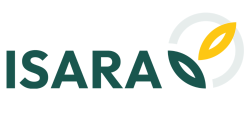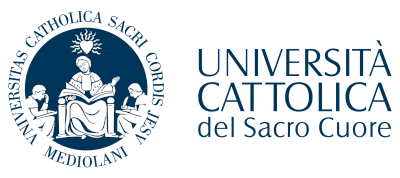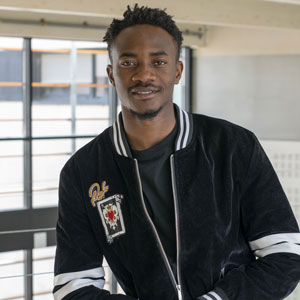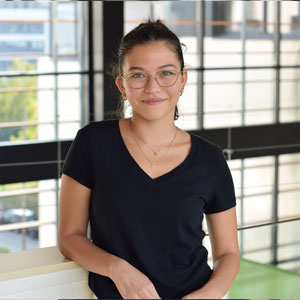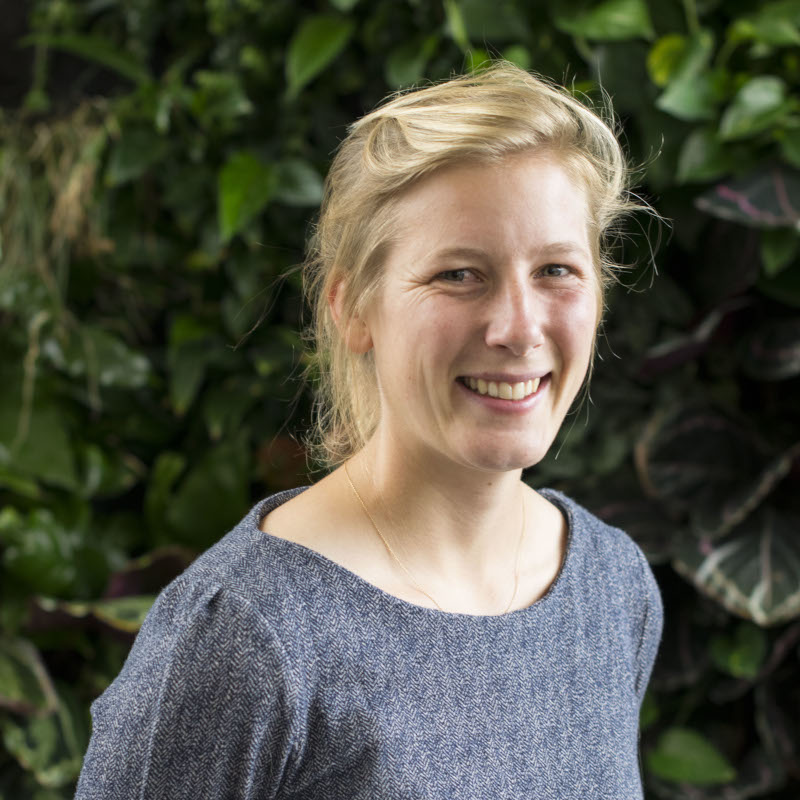I am proud… to be in an international program which raises the question of “sustainability” because today this notion affects the entire world. In addition, I am delighted to share all these thoughts with a very international class with very different life experiences.
I studied in Cameroon where I completed a bachelor’s degree in “Nutrition, Food and Bio-resources Technology”, then I moved towards a master’s degree in food’s technology. I worked for 2 years in the field of sustainable agriculture linked to cocoa. I was a trainer in sustainable agriculture, and then manager of cocoa certification. I oversaw certifying the quality of the cocoa according to the Rainforest alliance standards for export to famous groups like Ferrero and Valrhona. These standards are strict and must be respected. Having worked in sustainability made me want to go further and more specifically in the agri-food industry.
I started looking at the masters that existed. In my research the 3 countries that stood out as the best ranked in food quality were Italy, France, and Spain. The Susfoods double degree program at ISARA allowed you to follow a year in Italy and then in France, so it was ideal.
The sustainability agenda is a global issue. The fact that this master’s degree is international allows it to expand to a broader approach. For me, it was the best! When I arrived in Italy, I decided to specialize my works in chocolate. My background and experience helped me a lot. All my research work, whether academic or otherwise, is centered on the problem of chocolate.
My first year in Italy was difficult because of administrative reasons.
My first year in Italy was difficult because of administrative reasons. I was not able to arrive at the start of the master program. So, I started classes very late in the middle of the exam period, which didn’t make things easy for me. Plus, I didn’t speak a word of Italian. Gradually, my situation improved. I started learning Italian. I met some nice people during the master’s degree and with group works, I was also able to integrate more easily. I was finally able to complete the first semester despite the courses that I had not been able to attend. It’s mainly due to my professional experience, it facilitated a lot of things. Sustainable agriculture and sustainable food ultimately complete each other in the aspects: social, economic and environmental.
In the 2nd semester, I met more Italian students, and I progressed in Italian. The teachers were very nice and supportive. They truly encouraged me. Also, having the lessons recorded really assisted me even though I preferred contact than online lessons.
When you move from the professional world to the academic world, it’s much easier […]
[…] because you acquired an experimental logic. This maturity and knowledge helped me a lot. In France and Italy, it is much more digitalized with platforms for taking classes and submitting personal work. I wasn’t used to it at first but I adapted myself. In Cameroon, we had precarious electrical instabilities which made this way of education difficult.
In France, the lessons are more practical, and we are fully involved in the industrial food processing. The link with professional world is very interesting, we can thus put theory into practice. In a company, we learn to manage the unexpected. You must know how to adapt, and this is also what is been thought at ISARA. Sustainability is a fairly new concept in the world, at least in terms of taking it really seriously. Depending on our countries of origin, we don’t see things the same way, we have different culture, these are crucial aspects when targeting sustainability as a global issue. We also had some international teachers from USA, Germany, Netherland etc. I really like this very international approach of this Master. I am delighted to be part of this journey surrounded by smart people.
Job purpose?
I want to continue in the agri-food part of cocoa and chocolate, Sustainability and CSR. The problems related to sustainability are encounter with the implementation certifications standard. There still remains a big gap in this area. Some planters are unable to make a decent living from their harvest and thus destroy forest for more space for their cocoa farm. It is cruel when we know there is much money in the chocolate industry. There is equity to be established and indeed protect the environment. We need to provide like for example: education and train farmers. Unfortunately, these problems are not just in the cocoa field, it’s motivating to work together with people sharing the same passion to solve these issues.
